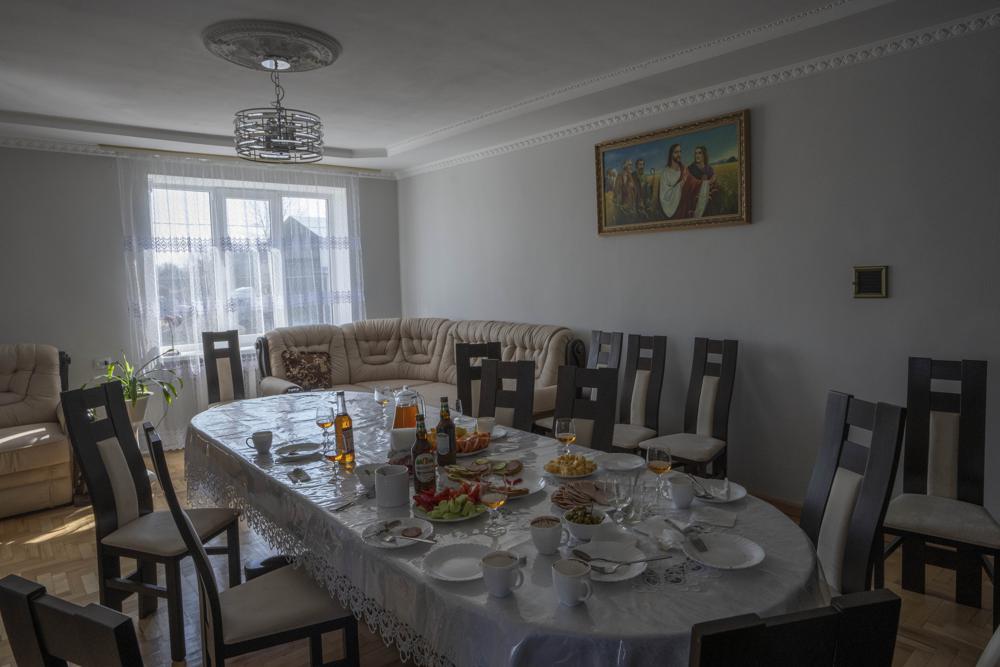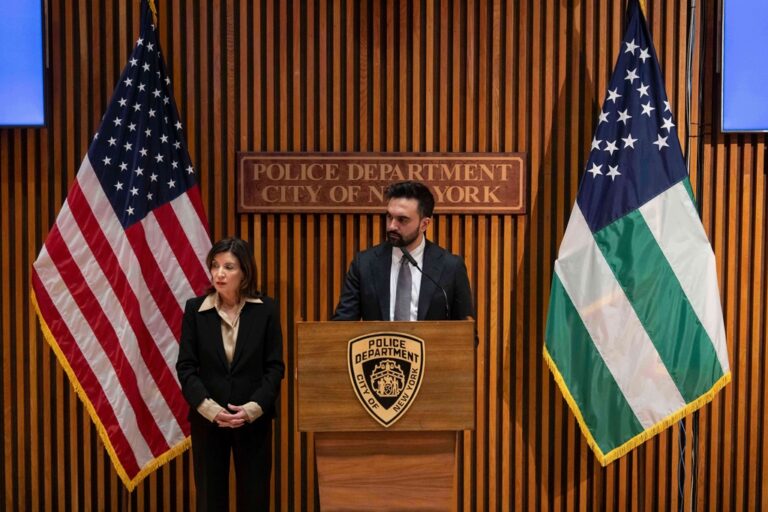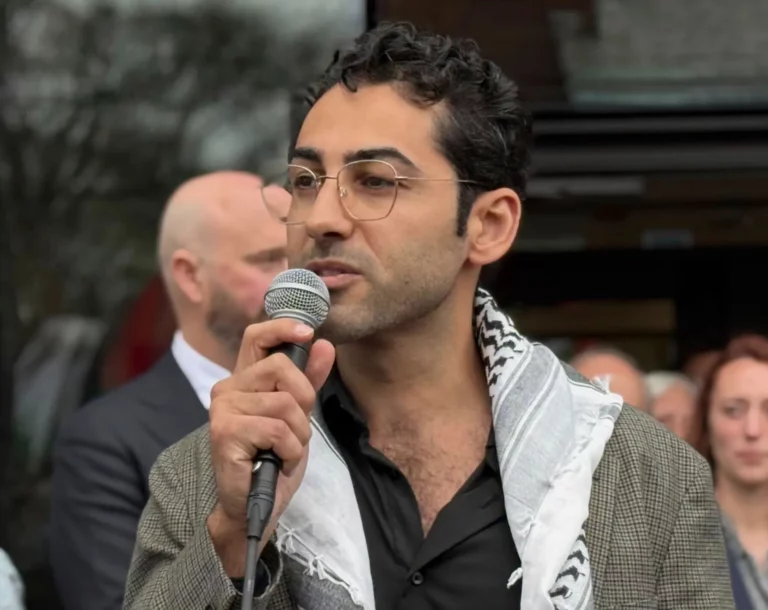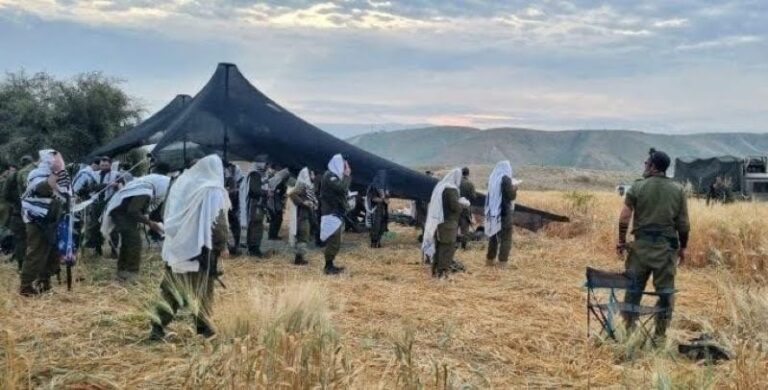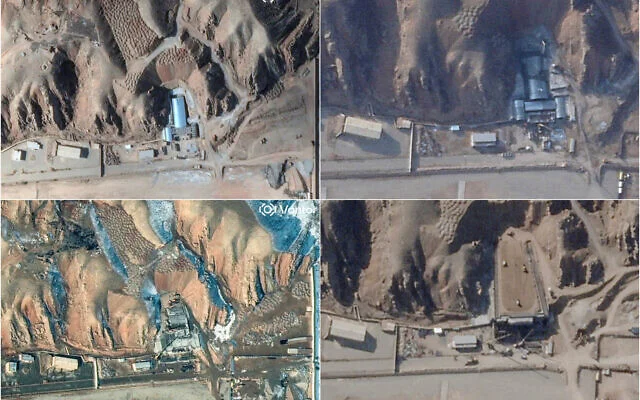Planting season has arrived in Ukraine. Boot marks stamped in the frozen earth have thawed. But the Pavlovych family’s fields remain untouched in a lonely landscape of checkpoints and churches.
Over a week ago, the family learned their 25-year-old soldier son, Roman, had been killed near the besieged city of Mariupol. On Tuesday, the father, also named Roman, will leave for the war himself.
“The front line is full of our best people. And now they are dying,” said the mother, Maria. In tears, she sat in her son’s bedroom in their warm brick home, his medals and photos spread before her.
The Pavlovych family knows a second front line in Russia’s war runs through the farmland here in western Ukraine, far from the daily resistance against the invasion. It is an uphill battle for farmers to feed not only their country but the world.
Ukraine and Russia account for a third of global wheat and barley exports, leaving millions across North Africa, the Middle East and parts of Asia facing the potential loss of access to the affordable supplies they need for bread and noodles. The war has raised the specter of food shortages and political instability in countries reliant on Ukrainian wheat, including Indonesia, Egypt, Yemen and Lebanon.
It is unclear how many farmers will be able to plant or tend to their harvests with the war raging, forcing those like Pavlovych to the front lines. And the challenges keep growing.
Infrastructure — from ports and roads to farm equipment — is snarled and damaged, meaning critical supplies like fuel are difficult to get and routes for export almost impossible to reach. Fertilizer producers are paralyzed by nearby fighting, and a prolonged winter may disrupt spring yields.
“How can we sow under the blows of Russian artillery? How can we sow when the enemy deliberately mines the fields, destroys fuel bases?” Ukrainian President Volodymyr Zelenskyy said in a recent address. “We do not know what harvest we will have and whether we’ll be able to export.”
An airport not far from the Pavlovych home was bombed in the early days of the war, sending unexploded ordnance into nearby fields now planted with warning signs instead of corn.
The thudding sounds of efforts to safely dispose of the ordnance could be heard last week beside the younger Pavlovych’s flower-strewn grave.
There is no time to lose, even as families mourn. The northwestern Lviv region near the border with Poland, far from the heart of what is known as Ukraine’s breadbasket in the south, is being asked to plant all the available fields it can, said Ivan Kilgan, head of the regional agricultural association.
Still, the region won’t be able to reach its pre-war levels.
“We are expecting to produce more than 50 million tons of cereals. Previously, we produced more than 80 million tons. It’s logical. Less land, less harvest,” Kilgan said.
Standing in a frigid barn containing more than 1,000 tons of wheat and soy, Kilgan vowed to send tons of flour to feed Ukraine’s army. He’s planting 2,000 hectares (nearly 5,000 acres) this year, up from 1,200 hectares (around 3,000 acres).
And yet he’s short on fertilizer. For the extra production he plans, he needs more than double the 300 tons of fertilizer he has.
“If the world wants Ukrainian bread, it needs to help with this,” Kilgan said. In his office, he showed blueprints for more grain elevators and put them aside with frustration: “Now, these are just paper.”
U.N. Secretary-General Antonio Guterres has urged the world to avert “a hurricane of hunger” from the disruption to Ukrainian grains, which the World Food Program relies on for about half of its wheat supplies.
Alternative wheat supplies will be more expensive and hit poor households elsewhere in the world, said Megan Konar, an associate professor at the University of Illinois at Urbana-Champaign whose research focuses on the intersection of food, water and trade.
“Winter wheat is the biggest wheat crop in Ukraine and Russia, which was planted last fall and due to be harvested early this summer,” she said. “This crop would be impacted if people are not available to work in the fields to harvest.”
Corn, which is planted in the spring, also will be affected if fighting impedes farmers, she added.
That’s true of those whose fields have been mined or bombed in parts of the heavily hit southern and central key growing areas, said Tetyana Hetman, head of the agriculture department in the Lviv region.
“We have already been approached by farmers from other regions to find land plots that they can cultivate” in the Lviv region to try to ensure the country’s food security, she said.
Concerned about feeding its own people, Ukraine’s government has limited exports of oats, millet, buckwheat, sugar, salt, rye, cattle and meat. Under specific licensing, wheat, corn, chicken meat and eggs, and sunflower oil can be shipped.
Ukraine does have sufficient food reserves, deputy minister of agrarian policy and food Taras Vysotsky told local media.
He said Ukraine consumes 8 million tons of wheat per year and has about 6 million tons on hand. It also has a two-year supply of corn, a five-year supply of sunflower oil and enough sugar for 1½ years.
Many Ukrainians have more immediate worries than harvests, with their country at stake.
An estimated 500 residents have gone to war out of 14,500 in the largely agricultural villages in this part of the Lviv region, said Bogdan Yusviak, who leads the local territorial council.
In his village, Pavlovych was the first to die.
His parents don’t know how it happened. The first hint that something had gone terribly wrong was the arrival of their son’s belongings by mail. Thirty minutes later, someone called about his death, his mother said.
Roman loved farming, his parents said, the way he loved to take in stray animals. Even at the front, he would advise his parents on questions like whether to plant potatoes this year. He told his father, in training for battle, that he’d be more useful at home and in the fields.
Now, those fields lay empty. “We have no time,” his father said, his hands clasped before him.
Standing outside near the gate of their home, his mother looked up at the evergreen trees nearby.
“Those trees grew up with him,” Maria Pavlovych said of her son. Now, she said, she and his girlfriend go to the cemetery and take turns crying.
(AP)

